x
Hazard Statements
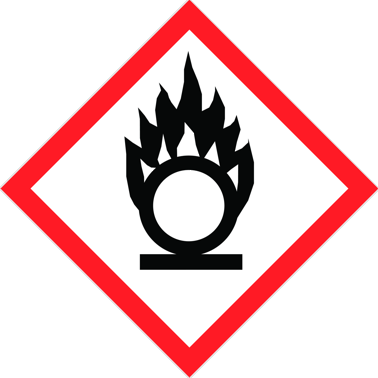
GHS03
Oxidizing
- Oxidizing gases, category 1
- Oxidizing liquids, categories 1, 2, 3
- Oxidizing solids, categories 1, 2, 3
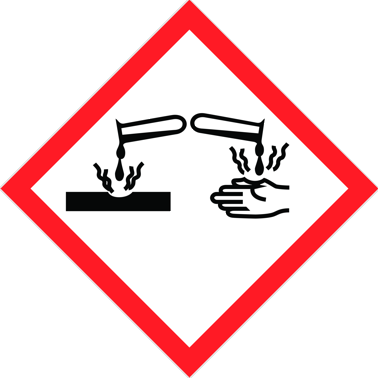
GHS05
Corrosive
- Corrosive to metals, category 1
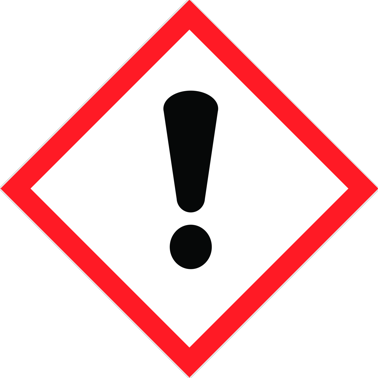
GHS03
Harmful
- Acute toxicity (oral, dermal, inhalation), category 4
- Skin irritation, categories 2, 3
- Eye irritation, category 2A
- Skin sensitization, category 1
- Specific target organ toxicity following single exposure, category 3
- Respiratory tract irritation
- Narcotic effects
Not used
- with the "skull and crossbones" pictogram
- for skin or eye irritation if:
- the "corrosion" pictogram also appears
- the "health hazard" pictogram is used to indicate respiratory sensitization
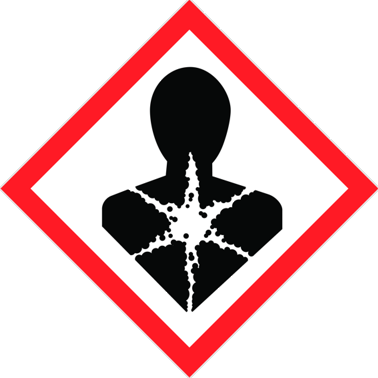
GHS08
Health hazard
- Respiratory sensitization, category 1
- Germ cell mutagenicity, categories 1A, 1B, 2
- Carcinogenicity, categories 1A, 1B, 2
- Reproductive toxicity, categories 1A, 1B, 2
- Specific target organ toxicity following single exposure, categories 1, 2
- Specific target organ toxicity following repeated exposure, categories 1, 2
- Aspiration hazard, categories 1, 2
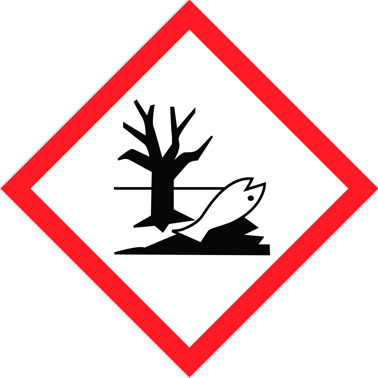
GHS09
Environmental hazard
- Acute hazards to the aquatic environment, category 1
- Chronic hazards to the aquatic environment, categories 1, 2
- Environmental toxicity, categories 1, 2
Safety & Transport Information
Suspected carcinogen. Probably a poison by various routes. Mutation data reported. Corrosive. A strong irritant. Hydrolyzes to form chromic and hydrochloric acids. A strong oxidizer and chlorinating agent. Violent reaction with water. Reacts violently with alcohol, ether, acetone, turpentine. Ignites or explodes on contact with nonmetal halides (e.g., disulfur dichloride, phosphorus trichloride, and phosphorus tribromide), nonmetal hydrides (e.g., hydrogen sulfide and hydrogen phosphide), flowers of sulfur, moist phosphorus, sodium azide, and urea. During preparation can violently explode. Incompatible with ammonia, disulfur dichloride, organic solvents, phosphorus, phosphorus trichloride, sodium azide, and sulfur. When heated to decomposition it emits toxic fumes of Cl−. See also CHROMIUM COMPOUNDS.Analytical Methods: For occupational chemical analysis use NIOSH: Chromium Hexavalent 7024.
Risk Codes:
R23/24/25 - Toxic by inhalation, in contact with skin and if swallowed
R34 - Causes burns
R35 - Causes severe burns
R43 - May cause sensitisation by skin contact
R45 - May cause cancer
R46 - May cause inheritable genetic damage
R49 - May cause cancer by inhalation
R50/53 - Very toxic to aquatic organisms, may cause long-term adverse effects in the aquatic environment
R8 - Contact with combustible material may cause fire
Safety Codes:
S17 - Keep away from combustible material
S26 - In case of contact with eyes, rinse immediately with plenty of water and seek medical advice
S27 - Take off immediately all contaminated clothing
S36/37/39 - Wear suitable protective clothing, gloves and eye/face protection
S45 - In case of accident or if you feel unwell seek medical advice immediately (show the label where possible)
S53 - Avoid exposure - obtain special instructions before use
S60 - This material and its container must be disposed of as hazardous waste
S61 - Avoid release to the environment. Refer to special instructions/safety data sheet
Hazard Symbols:
TLV: 0.025 ppm. Corrosive to tissue. Strong oxidizing agent.
RID/ADR certification :
UN 3244 8 / PG 2
x
Alternative Distributors of [Chromyl chloride]
Producers or manufacturers change the product range from time to time.
The following companies
have appeared as suppliers in the past / currently not verified
ABCR GmbH & Co. KG | Pfaltz & Bauer, Inc.
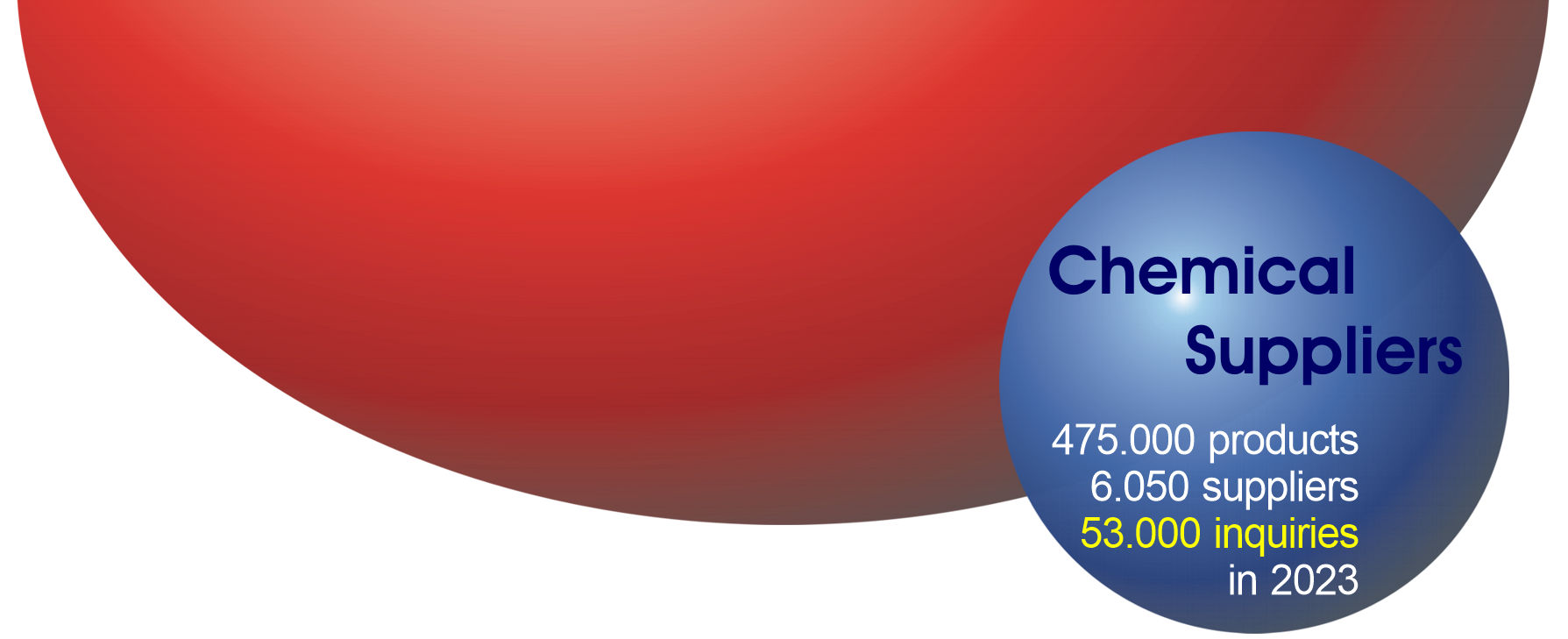
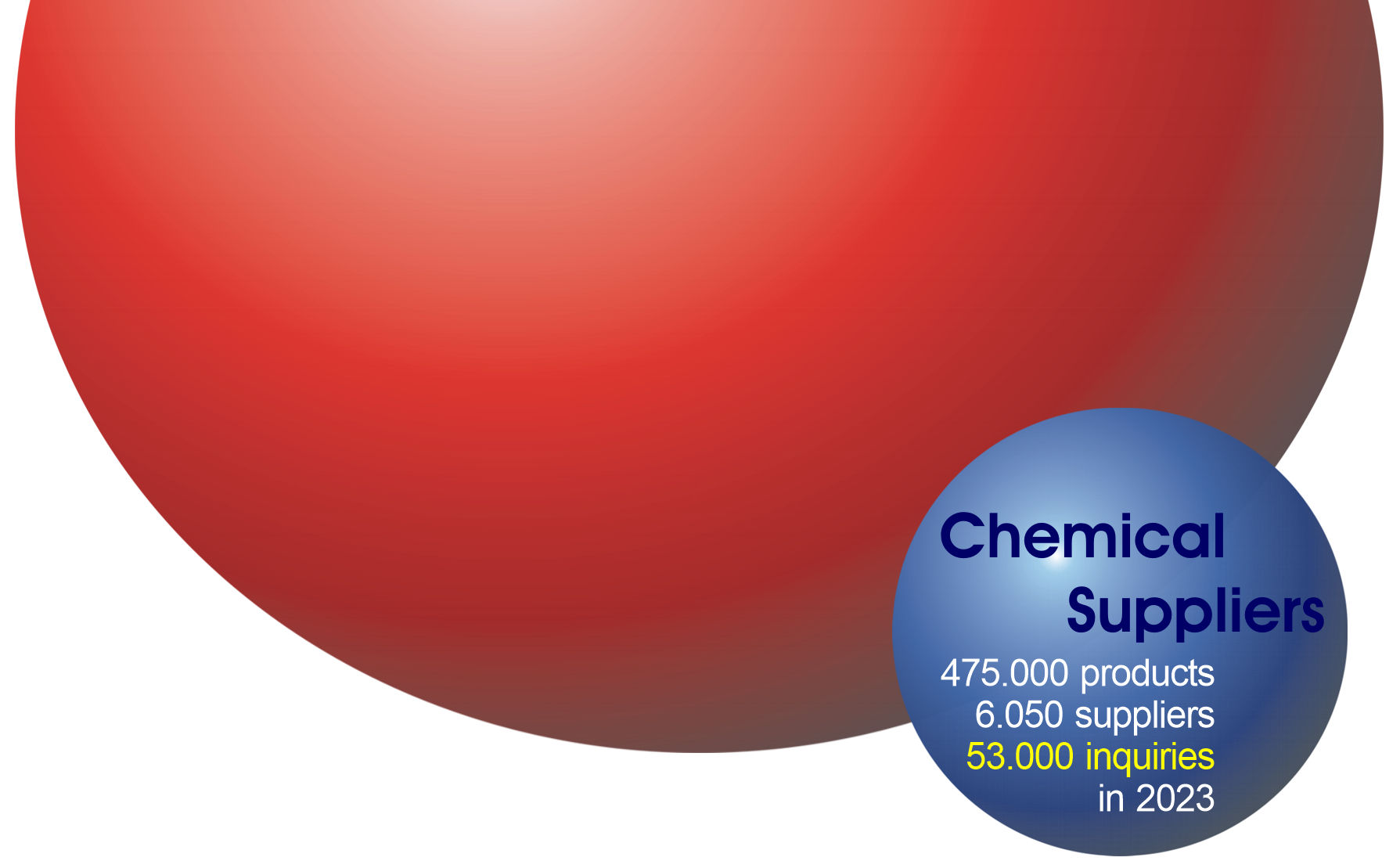
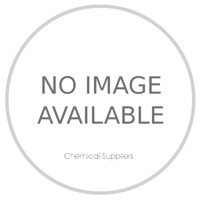






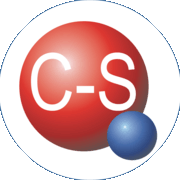 Chemical-Suppliers.eu
Chemical-Suppliers.eu